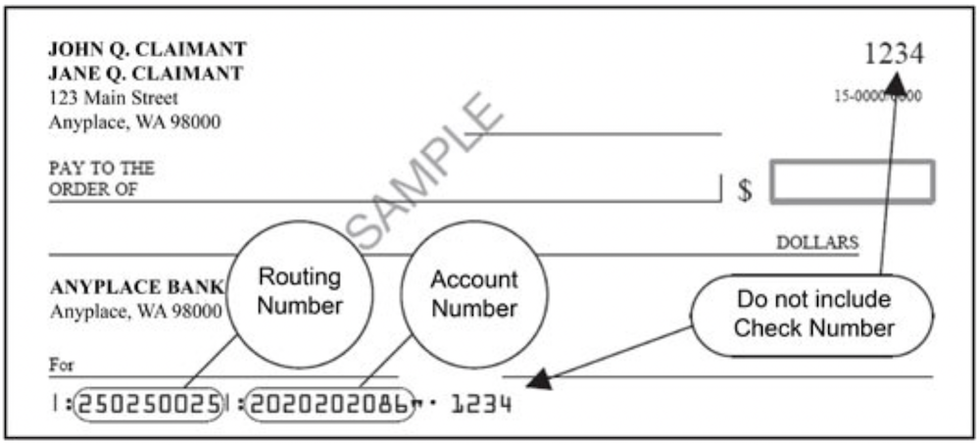
Free Money From the Government for Small Businesses and Independent Contractors: FAQs on the Newly Expanded SBA Grant Program
Under the CARES Act passed on March 27, 2020, independent contractors, small businesses, gig workers, and freelancers are eligible to receive a government grant of up to $10,000. The SBA sometimes refers to these grants as “advances,” but you are not required to repay this money to the government.
The application process involves filling out an SBA form requesting an Economic Injury Disaster Recovery Loan (EIDL), which provides for the advance even if the loan is not granted.
Initially, $10 billion was allocated by the government for these grants, but due to the overwhelming amount of applications, the SBA suspended accepting new applications in mid-April 2020 due to lapse in appropriations for the grants.
The SBA is now lifting the suspension because legislation passed on April 23, 2020, allocating another $60 billion for EIDL and grants thereunder.
Who Is Eligible for the Grants?
In addition to the entities that are already eligible for SBA disaster loans and grants, eligibility was expanded to include:
- Sole proprietorships, with or without employees
- Independent contractors
- Business entities with 500 or fewer employees
- Cooperatives and employee-owned businesses
- Private non-profits or 501(c)(19) veterans organizations
- Tribal small businesses
You must have been in business as of January 31, 2020. Expanded eligibility criteria and the grants are only available until December 31, 2020.
How Much Can I Get from the Grants?
As a result of the very high demand for these grants, the SBA implemented a $1,000 cap per employee on the advance, up to a maximum of $10,000. If you are a freelancer, this apparently effectively limits the advance to $1,000. If you are a business with five employees, then the advance would be limited to $5,000. If you are a business with 10 or more employees, the advance is limited to $10,000.
Where Do I Apply Online for the SBA Grant?
The application should be found at covid19relief.sba.gov/#/ (if for some reason it isn’t there, do a Google search on “SBA disaster loan application.”). (As of this writing, the SBA still needs to update the page to reflect that new appropriations for the grant program have been made by Congress on April 23, 2020.) Background information from the SBA can be found at www.sba.gov/disaster-assistance/coronavirus-covid-19.
I Applied for the SBA Grant Already, But I Have Not Heard Anything. Should I Apply Again?
That depends. If you applied before March 29, 2020, you will need to resubmit your application. Otherwise, the SBA is asking for patience.
What Advice Is There for Completing the SBA Application as an Independent Contractor or Freelancer?
If you are an independent contractor, freelancer, or gig worker, here are some tips on filling out the application:
- On the first question, check the second box as you are applying as an independent contractor or sole proprietorship.
- You must add your social security number if you are applying as an individual independent contractor.
- The form will ask you for the gross revenues for the last 12 months for your independent contractor business and the “cost of goods sold.” You can estimate this based on what happened in 2019. Cost of goods sold means the expenses incurred in the process of providing your service or product as a freelancer or independent contractor.
- Where it asks for “Owner” put your name and “100” percent owner.
- It will ask for the date the business was established. This is the date you started doing freelance or independent contractor work. Just estimate if you don’t have the exact date, but make sure it was before January 31, 2020.
- The form will ask for the bank account to which you want the grant money direct deposited. You need the name of your bank, the account number (the middle number at the bottom of your checks), and the routing number (the number at the bottom left of your checks). See the question below on direct depositing.
- For your business phone number, it’s OK to give your cell number.
- On the question “Is your business owned by a business entity?”, the answer is no since you are an individual owner.
- When the form asks for your business name, just enter your individual name if you don’t have a business name.
- You can ignore the question “If anyone assisted you in completing this application …” unless you have in fact gotten help.
- Make sure to check the box that says you want to apply for the $10,000 grant (although it will only be $1,000 for independent contractors).
The form should take about 15 minutes to fill out. After it is completed and submitted, the SBA will give you a confirmation number, so keep a copy of that for any follow-up.
How Can I Make Sure I Provide My Correct Direct Deposit Information to the SBA?
The direct deposit information is as follows:
- The name of your bank
- Your bank account number, which can be up to 17 characters. On the sample check below, the account number is 2020202086.
- The “routing number” for your bank, which must contain 9 digits. On the sample check below, the routing number is 250250025.
- Don’t include the check number (1234 on the image below).
- Double check that you have provided the correct numbers.
How Long Will It Take to Actually Get the Grant Money from the SBA?
The CARES Act originally required the SBA to grant the money within 3 days of application. But due to the overwhelming response, it has not been able to do so. Some people report having received grant money, but many are still waiting. You should anticipate that any new applications could result in a wait of weeks or longer.
Apparently, the SBA just directly deposits the grant money into your bank account, without notifying you that it is on the way or that it has been sent. Check your bank account regularly. If you see that the SBA has checked your credit, then your application is being processed.
Do I Need to Accept an Economic Injury Loan in Order to Get the Grant?
No. You can decide just to accept the grant you receive and do not have to accept an Economic Injury Disaster Loan.
But such a loan may be very helpful. Here are the key features of these loans:
- Loans up to $2 million
- Fixed interest of 3.75% (2.75% for non-profits)
- Repayment term of up to 30 years
- Your business had to be operational on January 31, 2020
- Loans may be used only to pay fixed debts, payroll, accounts payable, and other bills that could have been paid had the pandemic not occurred; however, if you plan to couple an EIDL with a PPP, you can’t include payroll. The programs are intended to complement one another and therefore not result in duplicate resources.
Do I Have to Pay Back the Grant?
No. It’s clear under the CARES Act that this is a grant that does not need to be repaid. No interest payment is required either.
What Other Financial Assistance Is Available to Small Businesses and Independent Contractors?
The CARES Act provided for the following benefits:
- Paycheck Protection Program (PPP) loans to help small businesses continue paying employees. Congress on April 23, 2020, added another $310 billion to the PPP, on top of the $350 billion when it was created in March. (See Where’s the Money: The Top 10 Frequently Asked Questions About CARES Act Loans.) The terms of these loans are extremely favorable and potentially forgivable.
- SBA Disaster Loans up to $2 million if your business is physically affected by a disaster (such as an earthquake or hurricane). The COVID-19 pandemic qualifies as a disaster.
- Unemployment benefits if you are a freelancer, independent contractor, or gig worker adversely affected by the pandemic. Previously, unemployment benefits were only available to terminated employees. Unemployment benefits are available through your state’s unemployment office and not the SBA.
How Can You Contact the SBA to Follow Up on Your Grant Application?
It has been difficult to get the SBA to respond to inquiries. The SBA website sets forth these means of contact:
- Phone: The SBA disaster customer service center at 800-659-2955 or 800-877-8339
- Email: disastercustomerservice@sba.gov
If you can’t get through to the SBA, try contacting the Small Business Development Center (SBDC) in your area. For example, the Northern California SBDC has been extremely helpful, and you can actually talk to a person live. See www.asksbdc.com or call 833-ASK-SBDC. Advisors can help you with both the PPP loan process and the EIDL loans/grants as well as special programs available in your state.
Regardless of what state you are in, it’s useful to subscribe to the NorCal SBDC Finance Center’s recorded webinars on YouTube.
Related Articles:
- Financial Help for Freelancers and Independent Contractors Affected by the Coronavirus Crisis
- Where’s the Money? The Top 10 Frequently Asked Questions About CARES Act Loans
- Small Business Relief: COVID-19 Resources for Startups
- Newly Available CARES Act Loans: 10 Things Small Businesses Need to Know
Copyright © by Richard D. Harroch. All Rights Reserved.




